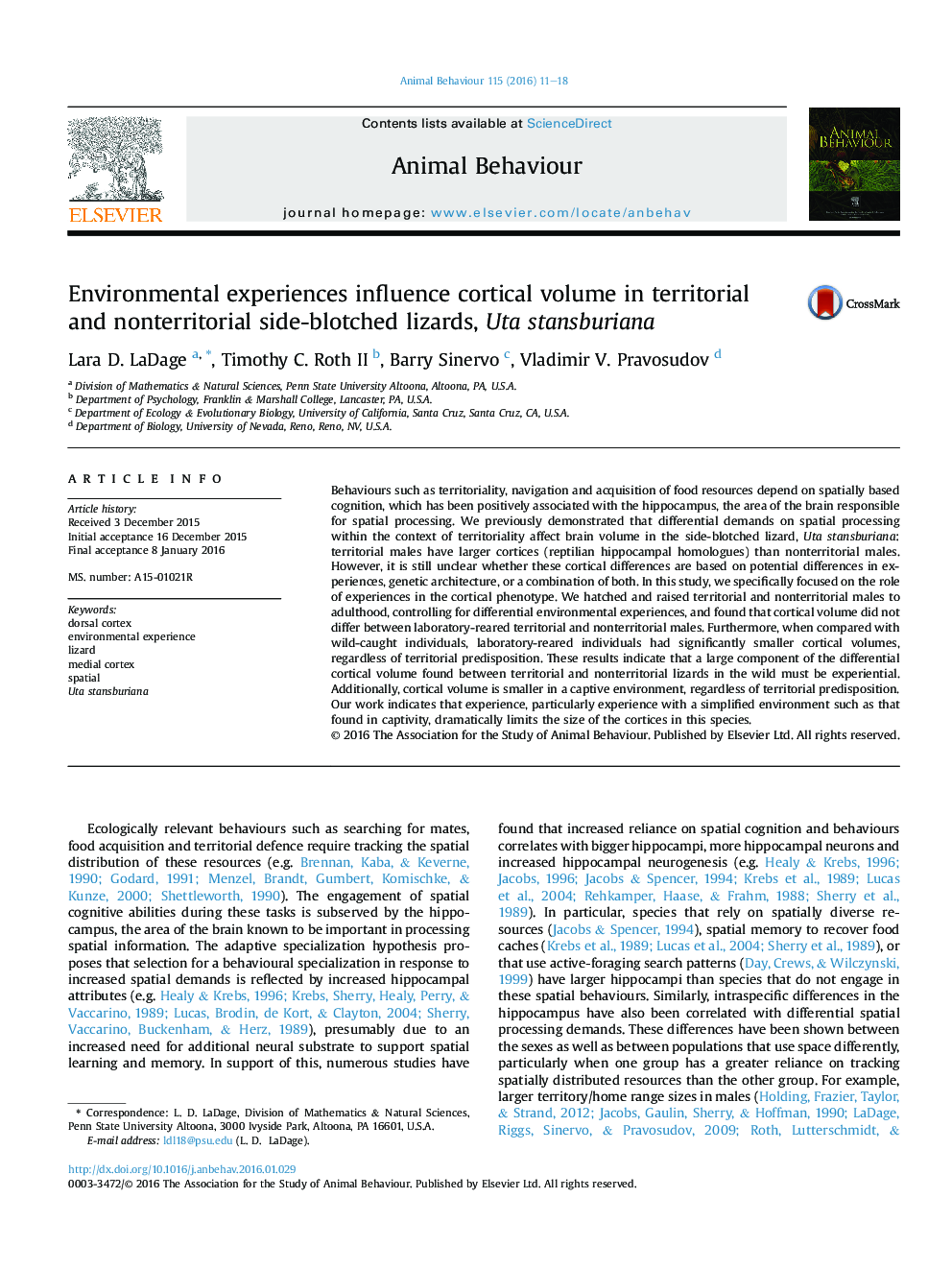| Article ID | Journal | Published Year | Pages | File Type |
|---|---|---|---|---|
| 8489070 | Animal Behaviour | 2016 | 8 Pages |
Abstract
Behaviours such as territoriality, navigation and acquisition of food resources depend on spatially based cognition, which has been positively associated with the hippocampus, the area of the brain responsible for spatial processing. We previously demonstrated that differential demands on spatial processing within the context of territoriality affect brain volume in the side-blotched lizard, Uta stansburiana: territorial males have larger cortices (reptilian hippocampal homologues) than nonterritorial males. However, it is still unclear whether these cortical differences are based on potential differences in experiences, genetic architecture, or a combination of both. In this study, we specifically focused on the role of experiences in the cortical phenotype. We hatched and raised territorial and nonterritorial males to adulthood, controlling for differential environmental experiences, and found that cortical volume did not differ between laboratory-reared territorial and nonterritorial males. Furthermore, when compared with wild-caught individuals, laboratory-reared individuals had significantly smaller cortical volumes, regardless of territorial predisposition. These results indicate that a large component of the differential cortical volume found between territorial and nonterritorial lizards in the wild must be experiential. Additionally, cortical volume is smaller in a captive environment, regardless of territorial predisposition. Our work indicates that experience, particularly experience with a simplified environment such as that found in captivity, dramatically limits the size of the cortices in this species.
Related Topics
Life Sciences
Agricultural and Biological Sciences
Animal Science and Zoology
Authors
Lara D. LaDage, Timothy C. II, Barry Sinervo, Vladimir V. Pravosudov,
